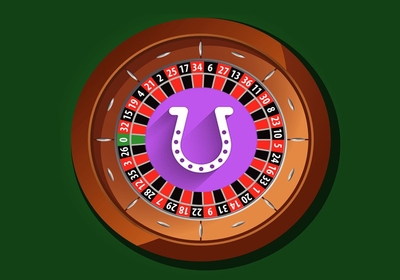 We all want to give ourselves the best chance of winning when having a few spins on the roulette wheel, and many people have spent countless hours trying to find a way to beat the game.
We all want to give ourselves the best chance of winning when having a few spins on the roulette wheel, and many people have spent countless hours trying to find a way to beat the game.
Whether they use complex maths, staking strategies, records of previous results or their own idea of ‘lucky’ numbers, roulette is a perfectly balanced game of luck and chance and it cannot be ‘beaten’.
Not unless you can exploit wheel bias of course, but that is a topic for another article.
The ‘best’ numbers to bet on in a fair game of roulette, therefore, do not exist. All numbers on the wheel are at the same time the best and the worst, they all have an equal chance of landing.
This would be a very short article if we stopped there though, so let’s explore the idea of lucky numbers, or those which as perhaps seen to be more common than others, as well as the thinking behind that.
Are Some Numbers Luckier than Others?
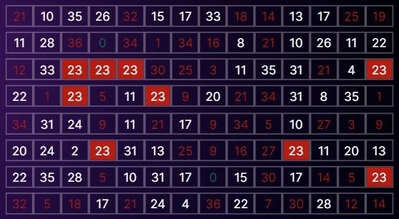 The thing about this question, is that even if there was a number that had statistically and universally come in more often than all the others, we would have no way of knowing about it.
The thing about this question, is that even if there was a number that had statistically and universally come in more often than all the others, we would have no way of knowing about it.
We would have to track the results of every roulette wheel being spun all over the world, and we would have to do that for years, to get anything like the sample size needed to come up with an answer that was even remotely accurate.
Statistically and mathematically there are no lucky numbers on the wheel because each has the exact same chance of being hit as all the others.
Each number on a European roulette wheel has a 1 in 37 chance of coming in on very spin, about 2.7%, and each spin is independent of the last – in other words, the wheel doesn’t ‘remember’ previous results. So just because 5 has landed three times in a row, it is not any less likely to land a fourth time than it was the time before.
The belief that past results can have an impact on future results is known as gambler’s fallacy. If you have ever thought something along the lines of “It’s been black 6 times in a row, a red number must be due soon”, then you have fallen victim to this fallacy.
However, just because that is true, it doesn’t mean that certain numbers haven’t historically come up more often than others.
We might not be able to track roulette numbers, but a study of National Lottery results from 2015-2022 showed that the number 41 had been drawn 350 times making it the ‘luckiest’ number in the game, while poor old number 53 had only been drawn 60 times in the same period.
Each number has the exact same chance of being drawn as all of the others, but nevertheless, number 41 has a 483% better chance of being drawn than number 53 going by past results.
Therefore, would it not make more sense to pick number 41 over 53 next time you buy a lottery ticket? The reason it comes up more doesn’t really matter, all that matters is that it does. Right?
Applying This to Roulette
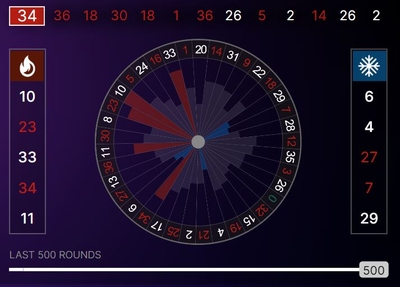 Although we cannot monitor roulette results in the same way, if we were able to record the results of a single wheel over several evenings, we might see some numbers being landed more often than others.
Although we cannot monitor roulette results in the same way, if we were able to record the results of a single wheel over several evenings, we might see some numbers being landed more often than others.
We aren’t talking about wheel bias here, but it is extremely unlikely that each number will have landed an equal number of times.
The lottery example above takes into account approximately 750 draws (although 6 numbers are drawn each time rather than 1) and shows an extreme difference between the most common and uncommon numbers, so we can assume the same would be true for roulette spins.
This would therefore make certain numbers look like they were luckier or more likely to come in than others, and up until that point, this would be true.
The thing is though, this is all based on past results, and the future has no guarantees.
Even if number 28 had come up 200 times out of the last 750 spins, taking a 26.6% share of the results, it could then not come up for the next 10,000 spins.
Therefore, there really is no way to take advantage of any perceived number favouritism shown by a roulette wheel, because those results can change on a sixpence.
Roulette Player’s Favourite and Least Favourite Numbers
The above might all be true, but this doesn’t stop roulette players from having their own ideas and superstitions, which are born out in the way they bet.
Despite logic and the rules of maths telling us otherwise, we are suckers for seeing things that aren’t there.
Number 7 and 17
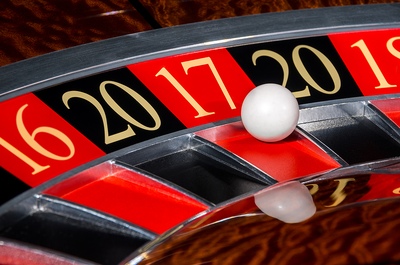 Any croupier will tell you that the most likely number to have chips placed on it is the number 17, closely followed by the number 7.
Any croupier will tell you that the most likely number to have chips placed on it is the number 17, closely followed by the number 7.
To be fair, there are some pretty amazing stories connected to number 17; for example businessman Mike Ashley once won £1.3 million betting on it in a single spin, and Sean Connery famously won a fortune betting on the number 17 three times in a row.
However, the old chicken or egg question comes into play here; were these bets winners because number 17 is lucky, or was the number 17’s reputation as a lucky number the only reason Ashley and Connery bet on them in the first place?
The affinity for the number 7, or numbers containing the number 7 is hard to pin down, but if we look back through history and even into the structure of our world it crops up a lot.
There are 7 days in a week, seven wonders of the world, 7 deadly sins, seven continents, and even seven colours in the rainbow.
We also know that odd numbers are preferable to even numbers because they ‘feel’ more unique, and even the way the number looks could have something to do with it.
It doesn’t really matter once all is said and done, because numbers 17 and 7 both have just as much statistical chance of coming in as any other number.
Number 13
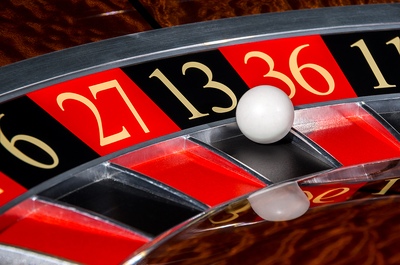 For obvious reasons, the number 13 is widely reported to be the least bet on number on the wheel.
For obvious reasons, the number 13 is widely reported to be the least bet on number on the wheel.
Famous for being an inherently unlucky number (Friday the 13th anyone?), it is eschewed by roulette players the world over – apart from in Italy, perhaps, where the number 13 is actually considered lucky rather than unlucky – but this superstition has no basis in reality.
The number 13 is no more or less likely to come up than any other, and the fact that fewer people feel comfortable betting on it does nothing to change this.
If anything, people who avoid this number are potentially doing themselves out of a win on the occasions that the ball does land on it.
All numbers on the roulette wheel are equal, both in terms of payouts and their chance of coming in, even those that have superstitions attached to them in popular culture.
